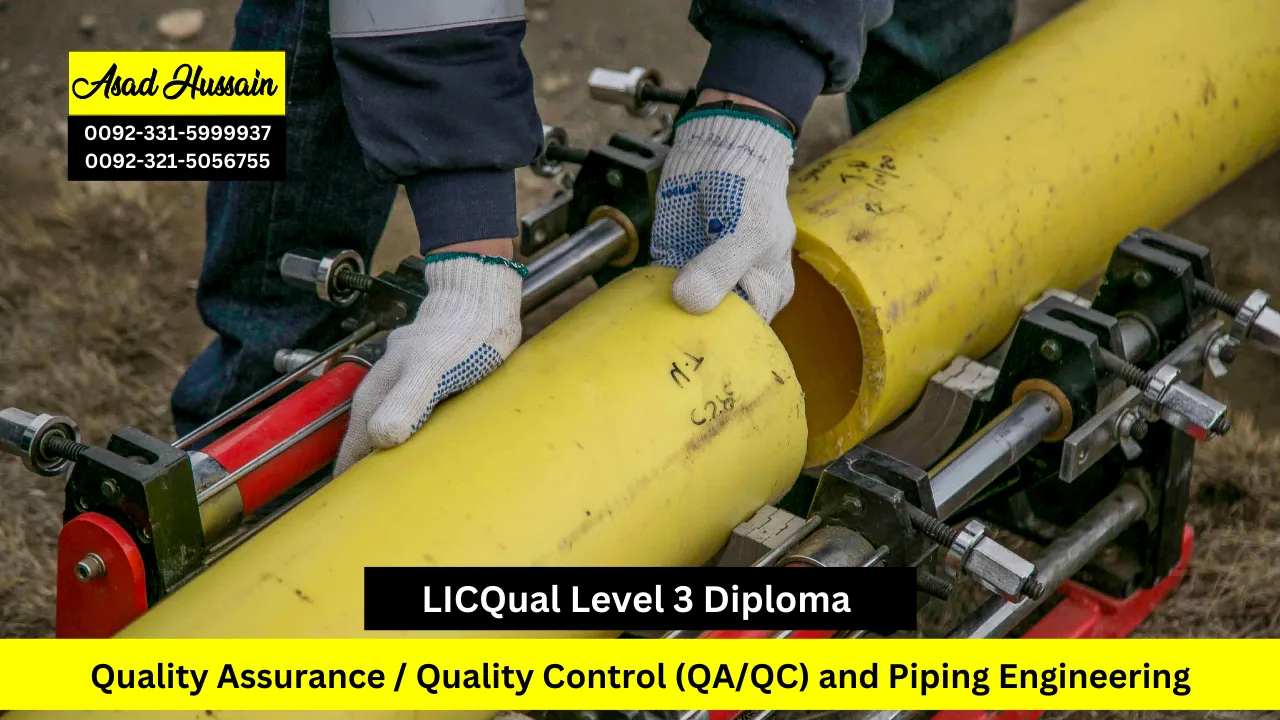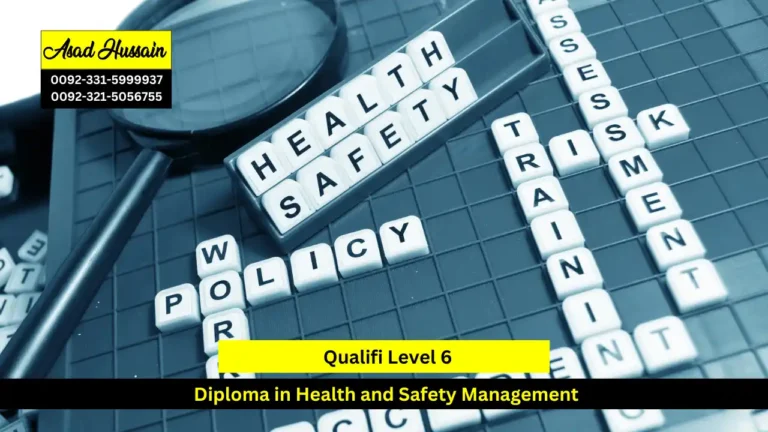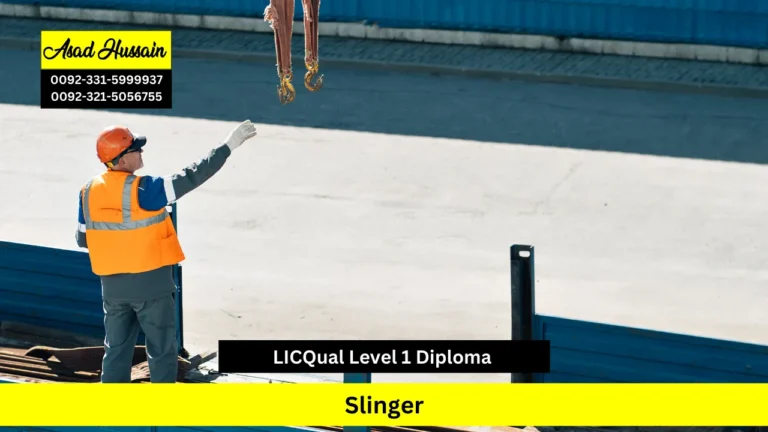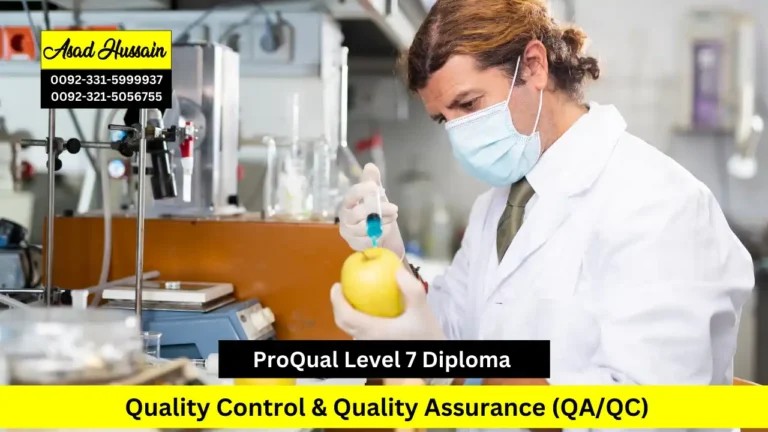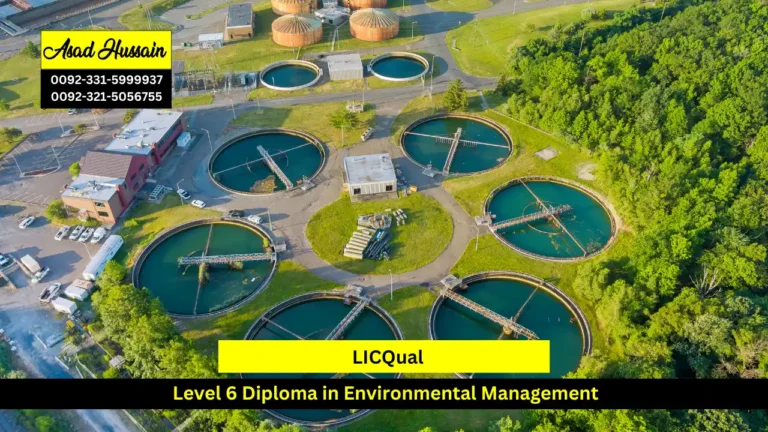Ensuring the quality, safety, and reliability of piping systems is a critical responsibility in industrial, mechanical, and construction sectors. The diploma is designed to equip learners with essential knowledge and practical skills in QA/QC processes, piping system inspection, and compliance with international standards.
LICQual Level 3 Diploma in Quality Assurance / Quality Control (QA/QC) and Piping Engineering provides a comprehensive overview of QA/QC principles in piping engineering, covering key topics such as piping codes and standards (ASME, API, ANSI, ISO), welding inspection, non-destructive testing (NDT) fundamentals, dimensional checks, and documentation for quality management. Participants will gain practical experience in monitoring piping fabrication, erection, and installation, as well as applying QA/QC procedures to ensure system integrity and operational efficiency.
Graduates will develop the ability to identify defects, assess risks, and implement corrective actions in accordance with industry best practices. The diploma also emphasizes the preparation and maintenance of accurate inspection records, reports, and quality documentation, ensuring compliance with regulatory requirements. By integrating theoretical knowledge with hands-on applications, learners will be prepared to contribute effectively to quality assurance and control initiatives on piping projects.
Upon completion, learners will be ready to pursue roles such as QA/QC Piping Inspector, Mechanical QA/QC Technician, or Site Inspection Officer. The diploma enhances career prospects in mechanical, industrial, and construction engineering fields and provides a solid foundation for further professional development.
Program Highlights
Mandatory Units
- Introduction to QA/QC and Piping Engineering
- Piping Materials, Components, and Fabrication
- International Codes and Standards in QA/QC and Piping
- Welding Processes and Visual Inspection Techniques
- Non-Destructive Testing (NDT) Methods
- QA/QC Documentation and Reporting
The diploma is designed for individuals seeking foundational knowledge and practical skills in quality assurance, piping inspection, and compliance management. To ensure learners are adequately prepared, the following entry requirements apply:
1. Age Requirements
- Applicants must be at least 18 years old to enroll in the course.
2. Educational Requirements
- Minimum of a Level 2 qualification in Mechanical Engineering, Piping Engineering, Industrial Technology, or a related technical field.
- Equivalent professional certifications or practical experience in mechanical or piping QA/QC may also be considered.
3. Professional Experience
- Preferably 1–2 years of experience in mechanical engineering, piping projects, site supervision, or QA/QC roles.
- Familiarity with compliance standards, project management, and safety protocols is advantageous.
4. Technical Skills
- Basic understanding of piping systems, materials, and mechanical processes.
- Familiarity with QA/QC procedures, inspection techniques, and reporting tools.
- Ability to interpret technical drawings, specifications, and documentation.
5. Application Fee (if applicable)
- Some centres may require a non-refundable application fee. Confirm details directly with the course provider.
6. Personal Statement or Motivation Letter
- Applicants should submit a statement outlining professional goals, interest in QA/QC and piping engineering, and motivation for completing the diploma.
7. Interview or Assessment (if applicable)
- Certain centres may conduct interviews or practical assessments to evaluate technical knowledge, problem-solving ability, and readiness for the program.
8. Motivation and Commitment
- Candidates must demonstrate dedication to continuous professional development (CPD) and engagement in both theoretical and practical learning.
- Commitment to completing assignments, assessments, and workplace projects is essential.
9. English Language Proficiency
- Non-native English speakers must provide evidence of proficiency, such as IELTS 5.5+ or equivalent, to ensure comprehension of course content and assessments.
The diploma equips learners with essential knowledge, practical skills, and professional competencies required to conduct quality assurance and control in industrial piping projects. Graduates will gain the ability to apply theoretical principles, interpret technical documentation, and perform inspections aligned with international standards.
1. Introduction to QA/QC and Piping Engineering
- Understand fundamental concepts of quality assurance (QA) and quality control (QC) in piping systems.
- Comprehend the roles and responsibilities of QA/QC professionals in mechanical and industrial engineering projects.
- Apply basic QA/QC principles to evaluate the quality, safety, and reliability of piping installations.
2. Piping Materials, Components, and Fabrication
- Identify common piping materials, fittings, valves, and components used in industrial applications.
- Understand fabrication processes, including cutting, welding, bending, and assembly techniques.
- Evaluate material suitability and compliance with project specifications and industry standards.
3. International Codes and Standards in QA/QC and Piping
- Gain knowledge of key international standards such as ASME, API, ANSI, and ISO.
- Apply standards to ensure compliance, safety, and operational reliability in piping systems.
- Recognize the importance of regulatory frameworks in industrial QA/QC practices.
4. Welding Processes and Visual Inspection Techniques
- Understand common welding methods used in piping construction and maintenance.
- Perform visual inspections to identify defects, deviations, or non-conformities.
- Document inspection results and recommend corrective actions as necessary.
5. Non-Destructive Testing (NDT) Methods
- Learn basic NDT techniques, including radiography, ultrasonic, magnetic particle, and dye penetrant testing.
- Interpret NDT results to identify potential faults or weaknesses in piping systems.
- Apply NDT findings to inform maintenance, repair, and quality improvement strategies.
6. QA/QC Documentation and Reporting
- Prepare accurate inspection reports, checklists, and quality records.
- Maintain documentation in accordance with project requirements and international standards.
- Use documentation to support compliance audits, risk assessments, and continuous improvement initiatives.
The diploma is designed for individuals seeking foundational expertise in quality assurance, quality control, and industrial piping systems. This course is ideal for learners who want to develop practical inspection skills, understand compliance with international standards, and enhance their career prospects in mechanical, construction, and industrial engineering sectors.
Educational Instructors and Trainers
- Professionals teaching mechanical engineering, piping systems, or QA/QC practices.
- Individuals looking to integrate QA/QC principles and inspection techniques into their training programs.
Environmental Advocates and Activists
- Professionals ensuring industrial projects adhere to environmental compliance and sustainability standards.
- Individuals interested in safe and efficient piping systems that minimize environmental risks.
Research and Development Teams
- Engineers and technical specialists involved in designing, testing, or optimizing piping systems.
- Professionals applying QA/QC methods to improve reliability, safety, and operational efficiency.
Corporate Social Responsibility (CSR) Professionals
- Individuals ensuring organizational compliance with quality, safety, and environmental standards.
- Professionals integrating QA/QC practices into CSR initiatives for industrial projects.
Students and Recent Graduates
- Learners seeking recognized Level 3 certification in QA/QC and piping engineering.
- Individuals aiming to enter careers in QA/QC inspection, mechanical supervision, or site management.
Career Changers
- Professionals from related technical or engineering fields seeking specialization in QA/QC piping inspection.
- Individuals aiming to enhance career opportunities in quality assurance, industrial inspection, and project supervision.
Policy Makers and Regulators
- Professionals responsible for developing, enforcing, or monitoring industrial piping standards and safety regulations.
- Individuals requiring practical knowledge of QA/QC procedures to inform policy and regulatory decisions.
This course equips learners with the practical skills, technical knowledge, and foundational competencies necessary to perform quality assurance and control in piping projects effectively. Graduates will be prepared to pursue roles such as QA/QC Piping Inspector, Mechanical QA/QC Technician, or Site Inspection Officer, enhancing career prospects in mechanical, industrial, and construction engineering sectors.

